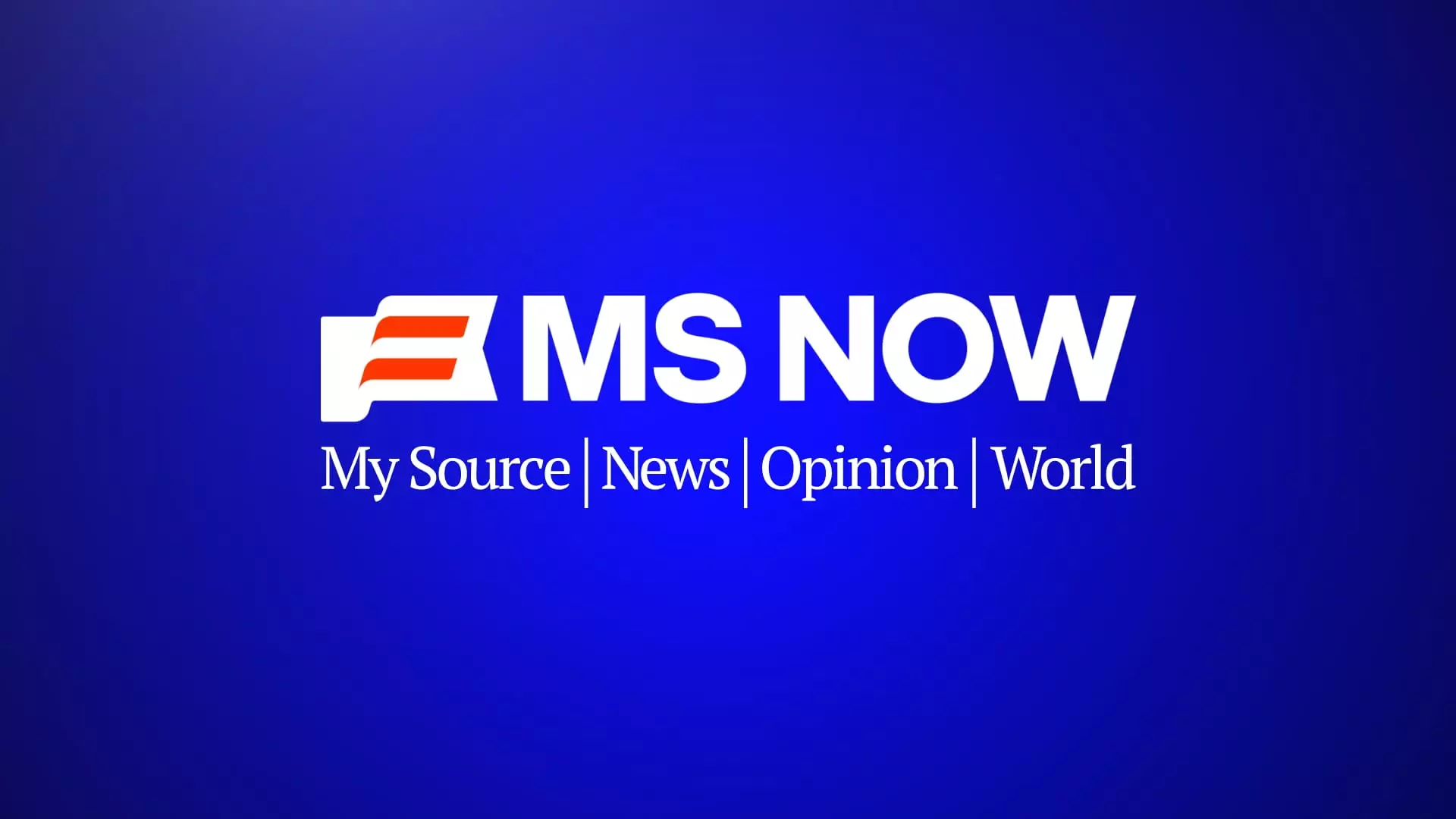In an era where trust in the mainstream media has sharply declined, MSNBC’s decision to overhaul its branding signifies a broader desire to reinvent itself amidst a landscape riddled with skepticism. The network’s impending name change to My Source News Opinion World, or MS Now, isn’t just a superficial rebranding; it’s a bold attempt to carve out a distinct identity that resonates with a more thoughtful, centrist audience. This move boldly confronts the longstanding perception that corporate affiliation stifles journalistic integrity, aiming instead to affirm a renewed commitment to independent, opinion-driven journalism—albeit within a framework still rooted in corporate interests.
The shift signifies something more profound—a push toward authentic storytelling that aligns with liberal ideals of accountability, transparency, and nuanced debate. MSNBC is positioning itself as a platform that can bridge partisan divides, emphasizing its independence from the conglomerate NBCUniversal. This strategy hints at a subtle but meaningful acknowledgment: in a polarized environment, legitimacy hinges on perceived independence. The rebranding acts as a symbolic step towards fostering trust among viewers who crave honest engagement over corporate messaging. It’s a tough gamble—attempting to redefine a well-established brand while maintaining its core identity—but one that could pay dividends if executed with sincerity.
Strategic Disruption: Separating the Brand from Corporate Roots
The decision to detach MSNBC from the NBCUniversal umbrella reveals an astute understanding of the market’s shifting sensitivities. For decades, the network has been intertwined with the larger media conglomerate, often caught in the crossfire of political debates about bias and corporate influence. This new chapter seeks to dispel those doubts by establishing a new, independent newsroom equipped to serve a more engaged, critically-minded audience. The recruitment of 100 journalists—many from politically aligned outlets like CNN and Politico—demonstrates an aggressive effort to build a robust, credible news operation that champions transparency and journalistic standards, rather than corporate appeasement.
Leadership’s insistence that “who we are and what we do will not change,” despite a name change, reflects a strategic understanding of branding’s emotional power. It’s a promise to viewers that, while the visuals and title may evolve, the essential values driving the network remain intact. Yet this consistency should be critically examined. In a landscape fraught with corporate influence, promises of independence often ring hollow unless backed by concrete actions. The real test will be whether MSNBC can genuinely pivot from past perceptions and establish a more authentic, less compromised narrative—something that’s challenging given its financial and structural ties to broader corporate interests.
The Balance of Power and Evolution in Modern News
The impending rebranding also underscores the ongoing tension within corporate media: the desire to maintain relevance while navigating the constraints of corporate ownership. MSNBC’s transformation is a calculated move to differentiate itself from NBC News, which has often faced accusations of bias or reluctance to challenge mainstream narratives. This split aims to provide room for more opinionated, progressive viewpoints—an appealing proposition for viewers tired of sanitized, corporate-driven journalism.
Yet, the transition raises poignant questions about the nature of true independence. The spinoff of Versant into a publicly traded entity appears to be a strategic play for agility and accountability, but it also introduces new pressures—shareholder expectations, commercial interests, and market competition—that may influence editorial choices over time. The branding overhaul, including logo removals for everything from sports channels to digital ventures, signals a comprehensive attempt to reinvent the entire ecosystem with a unified, modern identity that aligns with contemporary media consumption habits.
Moreover, MSNBC’s emphasis on a national marketing push reveals its recognition of the need to reconnect with a wider audience by fostering trust and relevance. In a polarized political environment, such moves are not just about branding—they reflect an underlying desire to re-establish credibility as a platform that values honest, engaging discourse over ideological signaling. Whether these efforts will succeed in positioning MSNBC as a true centrist voice or merely reinforce its narrowly defined niche remains an open question, but the strategic intent is clear: in a complex media climate, adaptability, branding, and perceived independence are prerequisites for survival and influence.

